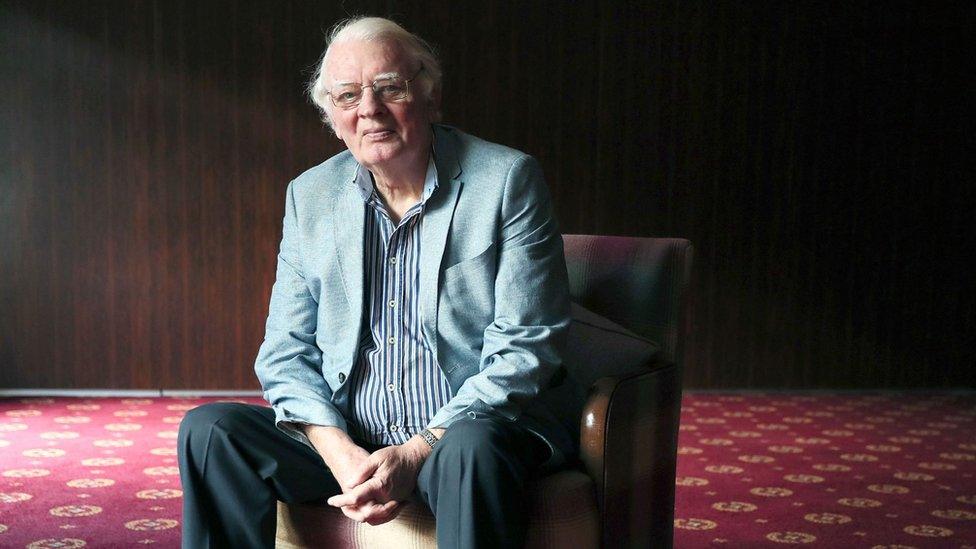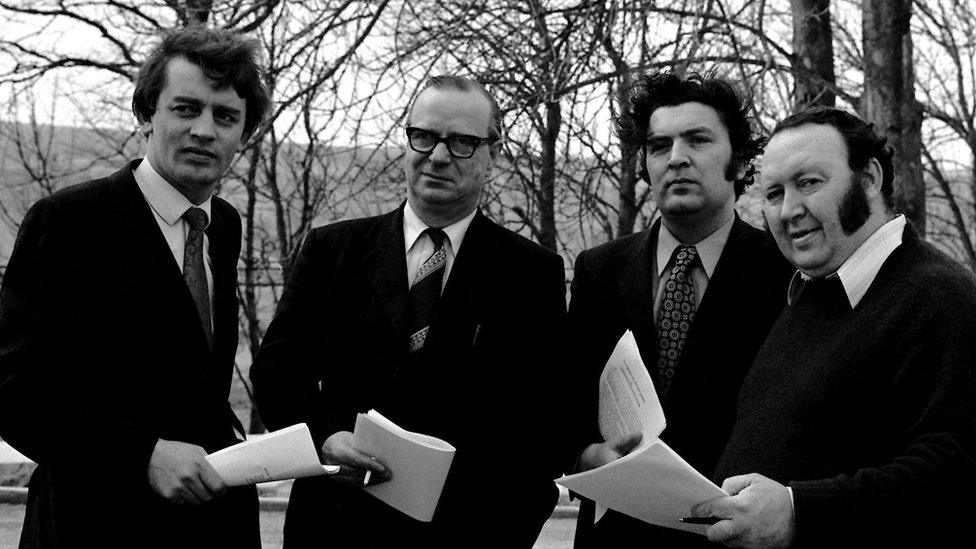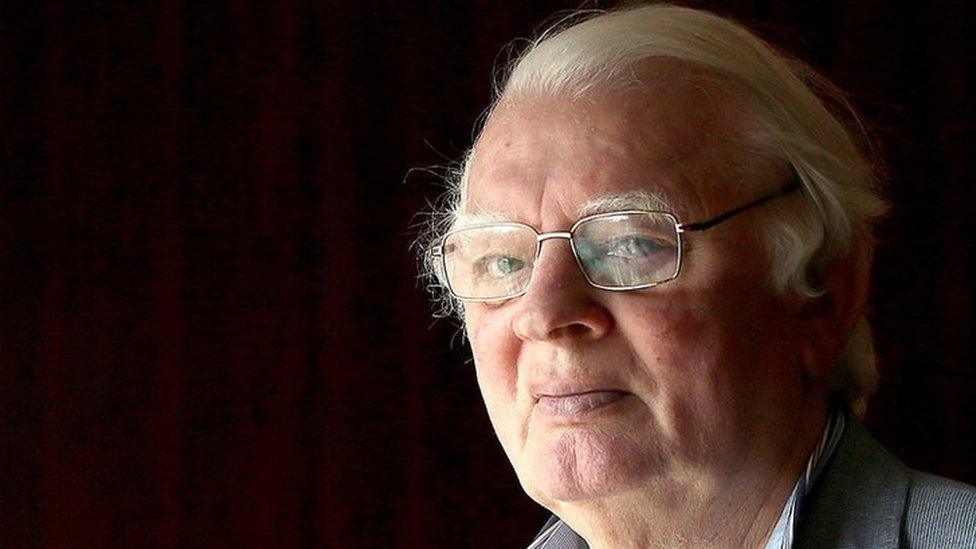Austin Currie: Tributes paid to NI civil rights leader
- Published

Austin Currie was a key figure in the Northern Ireland civil rights movement in the 1960s
Tributes have been paid to Austin Currie, one of the key figures in the civil rights movement in Northern Ireland, who has died at the age of 82.
Mr Currie led a high-profile housing rights protest in 1968 and two years later he helped to found the Social Democratic and Labour Party (SDLP).
President of Ireland Michael D Higgins said he gave "outstanding service to people of the island of Ireland".
He described Mr Currie as a "dedicated, sincere and very committed politician".
Former SDLP leader Mark Durkan, who led the party from 2001 to 2010, tweeted: "The Last Lion has left us."
He said Mr Currie's "purposed rage and principled roar" catalysed the civil rights movement.
Mr Durkan hailed him as "peaceful changemaker who, with others, charted path from divided grievance to shared governance".
Allow X content?
This article contains content provided by X. We ask for your permission before anything is loaded, as they may be using cookies and other technologies. You may want to read X’s cookie policy, external and privacy policy, external before accepting. To view this content choose ‘accept and continue’.

In the late 1960s, Mr Currie was the youngest MP at Stormont and used his position to campaign against sectarian discrimination in the allocation of social housing in Northern Ireland.
He served as a member of parliament and as a government minister on both sides of the Irish border, winning a seat in the Dáil (Irish parliament) in Dublin in 1989.

Austin Currie (left) with fellow SDLP members Gerry Fitt, John Hume and Paddy Devlin in 1973

Squatting protest
On 20 June 1968, Mr Currie and two other protestors broke into a council house in the village of Caledon, County Tyrone, and squatted in the property.
It followed the local council's decision to allocate a council house in Kinnard Park to a Protestant teenager who was single with no children, despite the social housing waiting list containing many Catholic families with young children.
The families in housing distress included several close relatives of Michelle Gildernew, the current Sinn Féin MP for Fermanagh and South Tyrone.
Mr Currie and his fellow squatters were evicted from the house by police after a number of hours, but the story made the UK national news that evening and is widely seen as having sparked the beginning of Northern Ireland's civil rights movement.
Ms Gildernew expressed her condolences on Twitter.
"Thinking of Senator Emer Currie, her mother Annita, and all the family on the death of a loving father and husband, Austin Currie," she said.

Allow X content?
This article contains content provided by X. We ask for your permission before anything is loaded, as they may be using cookies and other technologies. You may want to read X’s cookie policy, external and privacy policy, external before accepting. To view this content choose ‘accept and continue’.

'Made Ireland a better place'
Taoiseach (Irish prime minister) Mícheál Martin has paid tribute to Mr Currie by saying he was one of the extraordinary generation of northern leaders who "in the face of the appalling injustices and degradations of the northern state at that time recognised the power of peaceful protest".
Mr Martin said Mr Currie understood that social and economic justice and progress "could only be secured through the force of argument".
He described Mr Currie as a man of great physical courage.
"More than 30 times his family home was attacked by elements within loyalism - so called - and within elements of republicanism - so called," said Mr Martin.
"But yet with his colleagues he persisted.
"Our country owes him a great debt for this persistence."

Austin Currie (right) chatting to John Hume at an SDLP conference in 1980
Fine Gael leader and Tánaiste (Irish deputy prime minister) Leo Varadkar has paid tribute to Austin Currie describing him as one of the "outstanding politicians of his generation highlighting discrimination against Catholics in Northern Ireland".
Speaking in the Dáil (Irish paliament), Mr Varadkar who represents the same Dublin West constituency as Mr Currie did, said he got to know the former SDLP politician well through Fine Gael meetings.
He described Mr Currie as a man of "enormous bravery and real courage".
"He was vehemently opposed to political violence and while he and his family were subjected to it, they never contemplated resorting to it," he said.
"For Austin, like John Hume, two wrongs could never make a right."
'A giant in politics'
Ulster Unionist Party (UUP) leader Doug Beattie described him as "a committed civil rights activist".
Allow X content?
This article contains content provided by X. We ask for your permission before anything is loaded, as they may be using cookies and other technologies. You may want to read X’s cookie policy, external and privacy policy, external before accepting. To view this content choose ‘accept and continue’.

In a tweet, external, Alliance Party deputy leader Stephen Farry said Mr Currie was "a giant in politics across the island".
"He leaves a powerful legacy," he added.
- Published10 November 2021
